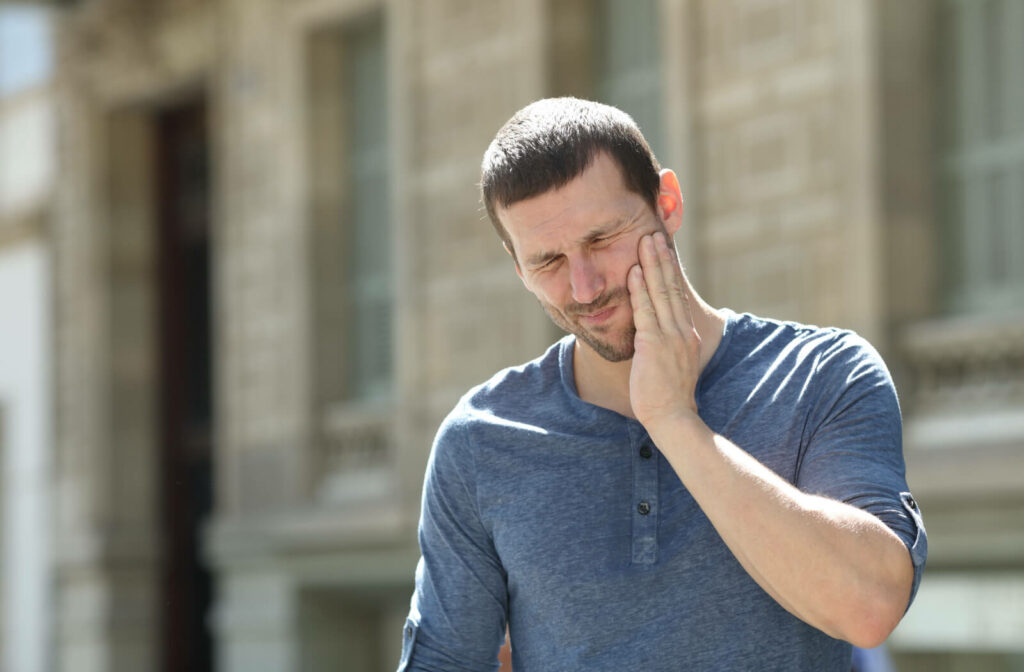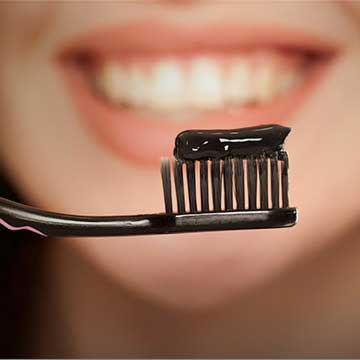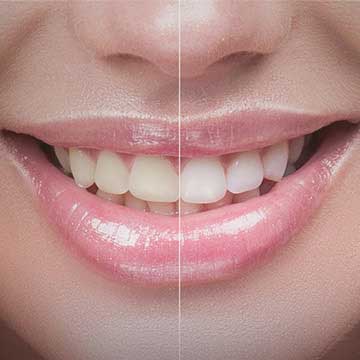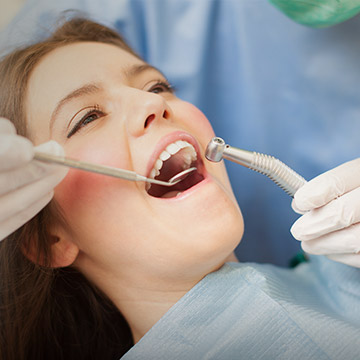Dealing with nagging jaw pain, clicks, and discomfort can be as frustrating as it is bewildering. Temporomandibular joint (TMJ) disorder is a complex condition with varied causes, though one often overlooked cause is the impact of stress. In fact, stress can be one of the primary causes of TMJ pain.
For those battling daily with clenched jaws and tender muscles, it’s critical to understand the dynamic link between our mental well-being and physical symptoms. Once you do, we can approach treatments such as mouthguards or Botox to help you find relief.
Understanding TMJ Pain
The temporomandibular joint (TMJ) is vital for basic human functions, like chewing, speaking, and even yawning. But it’s also one of the most complex joints in the human body. When this joint becomes impaired, it can lead to a range of discomfort, commonly known as a TMJ disorder (TMD).
The temporomandibular joint acts as a sliding hinge connecting your jawbone to your skull. It can be found on either side of your face, near your ears. TMJ disorder is a broad term used to describe pain and dysfunction in this joint and the muscles surrounding it. About 25–30% of the population experiences this.
Symptoms & Causes of TMJ Pain
The myriad of symptoms from TMJ disorder includes:
- Jaw pain or tenderness that may spread to the ears (can causing ringing in the ears)
- Difficulty opening the mouth widely
- Clicking, popping, or grating sounds in the jaw joint when opening or closing the mouth
- A tired feeling in the face
- Swelling on the side of the face
The causes of TMJ are as diverse as its symptoms, including:
- Injury to your jaw
- Diseases that affect the jaw joints and muscles, such as arthritis
- Misaligned bite
- Worn, loose, or missing teeth
- Ill-fitting dental appliances
- Clenching and grinding your teeth, known as bruxism
Impact of Stress on TMJ Pain
Stress can be the silent instigator of TMJ discomfort. Its physical manifestation can be insidious, causing you to clench your teeth at night, which helps explain why you may wake up with a sore jaw after a particularly rough day.
When we’re stressed, we tend to carry that tension in our bodies, often in our shoulders, neck, and, yes, even our jaws. This physical response can lead to chronic jaw clenching, a major factor in TMJ pain.
Stress Management for TMJ
There are ways to manage stress that can, in turn, reduce TMJ symptoms, such as:
- Mindfulness practices like meditation or yoga
- Regular aerobic exercise, particularly beneficial for stress reduction
- Journaling to help identify and manage stress triggers
- Professional counseling to address underlying stressors
Incorporating simple changes into your daily routine can significantly impact your stress levels and, in turn, your TMJ symptoms. Mindful living and self-care can do wonders for your overall health.
TMJ Treatments
Visiting your dentist can be the first step in addressing TMJ pain. A professional evaluation may help you understand the root of your symptoms and how best to resolve them. Treatments typically range from at-home strategies to more invasive procedures.
Your dentist can take a multi-faceted approach to treat TMJ, including:
- Lifestyle changes such as dietary modifications and avoiding extreme jaw movements
- Dental devices like mouthguards to prevent teeth grinding at night
- Referring you for physical therapy and exercises to loosen the jaw muscles
- Over-the-counter or prescription medications for pain relief
- Dental work to help correct your bite
- In severe cases, surgery might be necessary, but it’s usually a last resort.
Neuromodulators (Botox, Dysport, Xeomin) for TMJ Pain
Neuromodulators are widely known for their cosmetic applications, but they are also making a name for themselves as a novel therapy for TMJ pain. Injections of botulinum toxin type products can effectively reduce the symptoms for many patients.
When injected into the jaw, neuromodulators temporarily weaken the muscles responsible for clenching or grinding. With these muscles relaxed, the strain on the joint is alleviated, potentially decreasing pain and tension.
Benefits & Drawbacks of Botox for TMJ Pain
The advantages of Neurmodulators for TMJ pain include:
- Minimally-invasive: Unlike surgery, neuromodulator injections are relatively simple and have minimal recovery time.
- Effective: Many patients report a significant reduction in TMJ pain and muscle tension following neuromodulator treatment.
However, there are some drawbacks, including:
- Temporary relief: Neuromodulator effects typically last around 3–4 months, so it’s not a one-time fix.
- Cost: Treatment isn’t always covered by insurance and can be more costly than traditional therapies.

Bridging the Gap Between Stress & TMJ
We may not consider stress when considering jaw pain, but it’s crucial to consider its possible role. By managing stress through lifestyle changes and, potentially, professional interventions, patients can often experience a reduction in TMJ symptoms. However, in cases where traditional treatments fall short, you may consider exploring neuromodulator as a therapy option.
Remember that each person’s experience with TMJ is unique, and there is no one-size-fits-all solution. The professional team at Otara Dental can guide you through the available treatment options tailored to your specific needs.
If you’re currently grappling with TMJ pain, do not simply endure it. Take action. We offer mouthguards, neuromodulator and other options for TMJ relief.
Don’t let stress and TMJ pain keep you from a vibrant life. Book your consultation today and pave the way for a healthier, more comfortable tomorrow. Your jaw will thank you!









